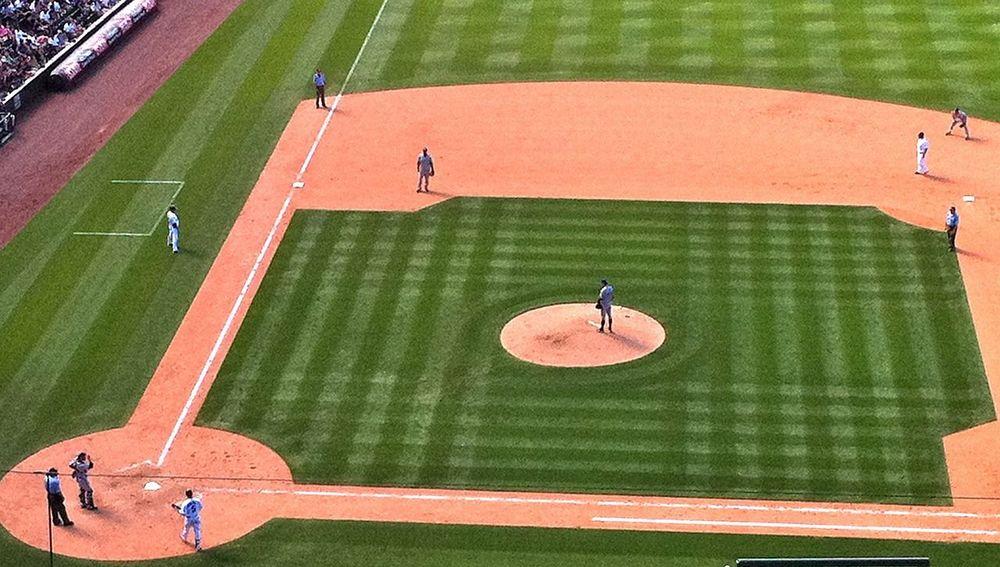
The Trickiness of Max Scherzer’s Trade Value
Despite the fact that it’s still early in the season, we’re already hearing rumblings in the media about Max Scherzer becoming a trade candidate at the deadline. After all, the Nationals’ chances of making the playoffs are slipping daily, and Scherzer is in the final year of his contract. If they’re out of it in July, they should shop him. So what would he be worth at that point?
It’s complicated. For multiple reasons.
First, there's what we call the "October bonus." Presumably, any team trading for Scherzer at the deadline would be getting an accomplished ace not only for August and September, but for any playoff appearances in October as well -- which are free to the team in salary terms (because players are only paid by their teams for the regular season; the league pays them bonuses for the playoffs). This is effectively an extra month of service, so the acquiring team is potentially receiving three months for the price of two.
Second, the marginal win value of that service is high, because Scherzer's potential performance in those months means more to a team in a playoff race than it would to the Nationals if they're out of the race.
That's the good news -- those factors increase his value. So what's the bad news?
First, there’s the matter of his 10/5 rights. Scherzer has been in the league for more than 10 years, and with the Nats for more than 5. This means he can veto any trade. That’s not to suggest he would say no to any deal -- he’s a competitive guy, and if the Nats are truly out of it, he might want to go somewhere with a better chance of postseason activity. He’ll turn 37 in July, so this might be his last chance.
But what truly matters is that he can pick his spot. If there are multiple offers for him (and there should be), the one he says yes to may not be the same one Nationals GM Mike Rizzo likes the best. From a valuation perspective, this means the Nats could be leaving money on the table. If the best package is an overpay from, say, the Blue Jays, but Scherzer doesn’t want to play there (wherever there is at that point), he could veto it in favor of a lesser offer from, say, the Yankees. So that means he may not necessarily go for the highest price in his range.
Then there’s the matter of the contract. It’s messy.
Technically, Scherzer is earning $35M this year. In reality, he’s not making quite that much because that entire salary has been deferred without interest, according to Cot’s baseball contracts. That was also true of the $35M per year he made in 2019 and 2020, which, along with this year’s salary, is being paid out in seven annual installments of $15M each from 2022-2028, minus the prorated part of 2020 due to the shortened season.
If that’s not complicated enough, Scherzer’s original $50M signing bonus was also deferred, including $15M in each of 2019, 2020, and 2021, paid in semiannual installments each April and September of those years. That’s important, because he’s not getting paid his actual salary. Those signing bonus installments are his only baseball income this year.
In other words, Scherzer is still owed a whole bunch of back pay in addition to what he’s making this season.
So if you want to trade for Scherzer, how much of all those obligations will you inherit? All the back pay? Just the deferred value of the 2021 salary he hasn’t earned yet? Or that plus the $7.5M installment in September?
That’s the big question.
But let’s first explore a scenario whereby any team that trades for him would not be on the hook for all that back pay, because that was money he earned in the past. That logic should also apply to any money he’s earned so far in 2021. There’s a precedent for this -- when Zack Greinke was traded at the 2019 deadline, the back pay he was owed was not included as part of the negotiations (Arizona still kicked in money, but it was for the ensuing period of control that Houston was assuming, not for the past.)
With that in mind, we can narrow the scope of the salary to just the money Scherzer is owed for the remainder of this year. Cot’s cites that the MLBPA estimates the net present value of that deferred $35M at $27,360,623. (Keep in mind that’s just an estimate, and assumptions such as the rate of inflation in the overall economy influence that number, and that could change.) Further, that does not include the $7.5M he’s still owed in September as the last installment of his signing bonus.
Got all that?
Another consideration is that most teams don’t like financial headaches. No one does. So it’s possible that, to keep the money side of this simple, the Nationals could just eat all of it. They created the headache, so they could just own it. If they did that, they would obviously increase the trade return, because in that scenario, the acquiring team would be getting Scherzer scot-free (in salary terms). And that would also make some sense, because the Nats’ farm is the worst in baseball, so it would give it a nice shot in the arm. Or they could work out some variation of that.
So let’s sum this up by reviewing all the options:
Option 1: The Nats eat all the money.
Everything. The entire haul is in prospect capital, based on the performance value of the remainder of this year, and it would be huge.
Option 2: The Nats eat the September $7.5M bonus payment and all the back pay, including what’s accumulated this year; the acquiring team assumes the remainder of the deferred 2021 salary only.
This scenario is the one we’re showing on our site today, as it’s the most typical of each trade. The return would still be strong, but not nearly as strong as Option 1.
Option 3: The acquiring team assumes the September payment and the remainder of the deferred 2021 salary.
The return here would be mediocre -- after all, the more money the acquiring team is responsible for, the less prospect capital it will give up.
Option 4: The acquiring team assumes all the money still owed: the September payment, the remainder of the 2021 salary, and all the other back pay.
This is the total salary-dump scenario. The Nats would clear their books. But the amount of back pay is so large that they would get zero prospect capital in return, and in fact, would likely need to include other positive-value players to even it out. This seems highly unlikely.
Personally, I think the Nats would be smart to choose Option 1. It’s the cleanest, and it would give their farm a big jolt. But I suspect, if a deal happens, it will be either Option 2 or some half-variant of Options 1 and 2. After all, everything is negotiable.
And if the Nats and another team somehow solve all those problems, they still have to run it by Scherzer himself, who, as noted, can veto any deal. All of which means this trade, if it happens, is going to be very interesting on multiple levels.
About the Author
Comments
4What are the luxury tax implications of each scenario for the acquiring team?


That really depends on each team, and where they're at with their budget this year. It's been well reported that the Yankees are just under the cap, as are the Astros. Several other teams as well. You can look up each on Fangraphs' Roster Resource pages for each team. Essentially, if a team wants to stay under, they're more likely to suggest the Nats pay the salary freight, which means the acquiring team would have to give up more in prospect capital (scenario one, mostly).
What I meant was, do any and all payouts taken on by the acquiring team count against the luxury tax? If the money is deferred beyond this year does the salary count against this year’s luxury tax? Do [deferred] signing bonuses count against the tax? Does backpay? For teams like the Yankees, Red Sox, or other teams looking to stay below the luxury tax limit for this year—do they have the ability to take some money off the Nationals’ books without impacting their luxury tax ledger for this year?
Oh I see. According to Cot's: "for luxury-tax purposes, Scherzer’s annual salary is $28,689,376" In other words, yes, any team trading for him takes on that luxury tax hit (pro-rated, of course), unless the Nats cover it or part of it.